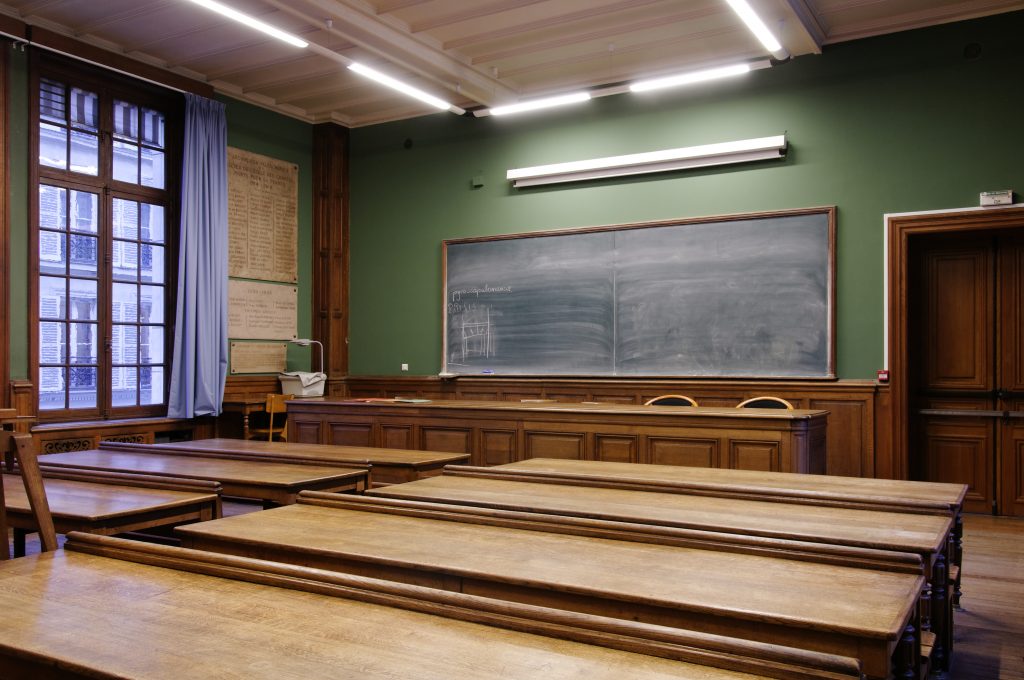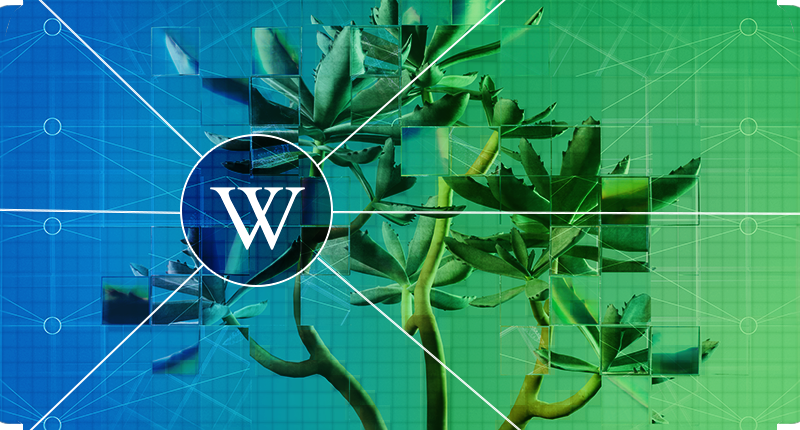Senior Program Manager Anne Gomez leads the New Readers initiative, where she works on ways to better understand barriers that prevent people around the world from accessing information online. One of her areas of interest is offline access, as she works with the New Readers team to improve the way people who have limited or infrequent access to the Internet can access free and open knowledge.
Over the coming months, Anne will be interviewing people who work to remove access barriers for people across the world. Here, she speaks with Jeremy Schwartz, the Executive Director for World Possible. World Possible’s Wikipedia entry describes it as “a non-profit organization that makes and distributes RACHEL (Remote Area Community Hotspot for Education and Learning), software that hosts offline free educational content such as Khan Academy, Wikipedia, Project Gutenberg and others via Wi-Fi on a Raspberry Pi computer.”
You can also read the other interviews in this series, including a chat with Emmanuel Engelhart of Kiwix.
———
Anne Gomez: Let’s start with the product your organization is known for. What is RACHEL?
Jeremy Schwartz: RACHEL stands for Remote Area Community Hotspot for Education & Learning. It’s a portable plug-and-play server which stores educational websites and makes that content available over any local (offline) wireless connection. It is our method of distributing copies of digital resources (book, video, and website copies) to offline communities. We, along with a handful of others, have to create those copies through scripting and host them on OER2Go.org.
———
Gomez: Tell me about what started your interest and involvement with offline educational resources? When was it?
Schwartz: In 2008, I finished my undergrad career on a boat: I spent 110 days aboard the MV Explorer where I traveled the world. My favorite classes were ICT & Global Change, and Human Rights & Ethics. As we stopped at different ports, I saw education as the big missing link between the two fields. Without connectivity, there had to be a way to distribute educational content to these communities. It turns out some folks at Cisco were already working on a project that filled this gap, which we formalized in 2009 as World Possible.
———
Gomez: What’s been the biggest surprise for you over the years?
Schwartz: The lack of growth of Internet connectivity. When we started this in 2008, we were sure that by 2018 there would be global Internet coverage. In fact, the rate of Internet adoption continues to slow. It’s contrary to frequent headlines about every “next thing” I read, and continues to surprise me.
———
Gomez: Smartphones have transformed the way people can access the internet. How has this changed the landscape and the way you view offline access? How do you see these devices impacting the future of educational resources?
Schwartz: Smartphones continue to be a game-changing enabler, not just in how users access and consume content, but how we think about connectivity in general. I don’t think we understand the scale of the offline world here. It’s half of the world’s population still. To me, teaching digital literacy to this population is becoming more critical. Knowing how to navigate an internet, produce digital content, and survive in an online world has become a key life skill. Offline access provides the first incentive for someone to want to know more, and to realize there is more out there. We hope our work encourages folks to buy that first smartphone, and to do something more with it than text and play games. We hope they see digital content as a learning tool which can answer their questions and change their livelihood.
———
Gomez: What hasn’t changed?
Schwartz: Our world is still pretty ripe with great ideas, but failed executions. This work hasn’t become any easier over the years, it still depends on dedicated people choosing to make content available, teachers to teach that content, and students who are free to learn. We’ve watched a number of ‘start-ups’ get great attention and fanfare, only to die out as quickly as they came trying to serve this market. The offline world still lacks the element of rapid scale our technology community has come to expect.
———
Gomez: You’ve been working through chapters on the ground in a number of countries, as well as in the US prison system. Can you share why you believe this model works?
Schwartz: We view our role here as exposing people to what is possible with technology, and letting them run with it. If we can’t find someone in a country who thinks the project is worthwhile, I can pretty much guarantee you it isn’t.
Our technology gives us a unique reach into the offline world. We use that reach to find someone exceptional and empower them with technological support to build something their communities need. Our model is to find these people who are experienced and enthusiastic in bringing RACHEL to their countries and have the skills to localize it with relevant content, introduce it to lots of people, and train teachers in how to use it. Then we bring them on as a chapter leader, and that chapter ultimately becomes its own independent non-profit. So far our chapter leaders have been recognized by Facebook, Internet Society, and the Nelson Mandela Young African Leaders Initiative.
———
Gomez: You create customized content in partnership with local entities, tailored for that country. Why is this important? Is it good design, legal requirements, etc?
Schwartz: Our chapter teams definitely create content in partnership with local entities, or just collect it from various local entities and package it together. I constantly take for granted how much of the Internet is in English. There are brilliant educators in every town around the world, but they have to be empowered by the Internet to share their lessons. We’re trying to give them that platform.
People often think about how we can align western educational content to local context, but the reality is, we need to have educators creating local content. Think about the different message you would get as a student if we dubbed over Chinese videos with English language and subtitles and told you this was the way to learn. Teaching should be done by a community, for a community. If the teaching isn’t perfect, a next generation should improve upon it–the answer can’t always be let’s go find how someone else taught it. There’s a process to learning we’re trying to enable.
———
Gomez: The device you’re primarily working with is more robust than the Raspberry Pi, with bigger storage, range, and battery backup. Why do you prefer this? Why does it work for the schools and teachers you’re working with?
Schwartz: This move was really in response to a technical need. We needed a device which solved our users’ power issues, while also providing more robust capabilities to serve multiple users. We still offer RACHEL-Pi, but it can only connect to around 10 users at a time and it does not have a battery. With RACHEL-Plus, as many as 20-50 users can connect at the same time, and it can run for 5-8 hours on a battery. Many of the schools using RACHEL have inconsistent or no power, but they can still use RACHEL-Plus all day long and charge it at home at night.
Finally, RACHEL-Plus has far greater processing power, which allows us to layer on features such as web-based content updates and data tracking. The Raspberry Pi has bottlenecks around microSD card read speeds (USB 2.0 interface), WiFi service (1×1 w/ internal antenna), and microSD card storage capacity (64/128GB).
———
Gomez: What’s the future look like for RACHEL? How do you see your work evolving?
Schwartz: [We hope that] RACHEL will become the Internet hub for our offline communities. We continue to innovate not just around content, but also the user experience with RACHEL. We hope to teach digital literacy, and part of that is extending the “Web 2.0” services we can deliver locally on RACHEL, concepts like message boards, e-mail, cloud storage, global search, and more. We are also evaluating ways to deliver small bits of data through physical courriers of data, this could provide asynchronous internet connectivity and content updates.
Even if the promise of free, ubiquitous Internet does become a reality in the developing world, we still see a role for RACHEL, especially in schools and areas that want to focus on providing access to learning without the distractions of the Internet. In the developed world, we’ve already seen RACHEL adopted by prisons, schools, and even by parents who want their kids to access an educational slice of the Internet at home without full access to Google and social media.
———
Gomez: What’s one thing the Wikimedia Foundation could do to help?
Schwartz: Helping us spread word about the availability of RACHEL. There is an immense need globally for offline solutions for the foreseeable future. Even in a place with limited bandwidth, caching content locally for multiple users is immensely valuable. The more users we can get on the platform, the more we can fundraise, develop, and inspire our users.
———
Gomez: Where do you learn more and share information about offline access? What resources exist for people who want to know more?
Schwartz: This is still an area of growth for our sector. More recently, we’ve started to join the conference circuit and find ourselves learning about lots of other great efforts. mEducation alliance, Mobile Learning Week, ICT4D, OpenEd, and Kloster’s Forum have all been good experiences for us. While none of them focus exclusively on offline solutions, all of them usually have tracks or specializations around the topic.
We also invite everyone to visit our website at www.worldpossible.org to read more about RACHEL, ask questions and share ideas in our community forums, and purchase RACHEL from our online-store.
Anne Gomez, Senior Program Manager, Program Management
Wikimedia Foundation




